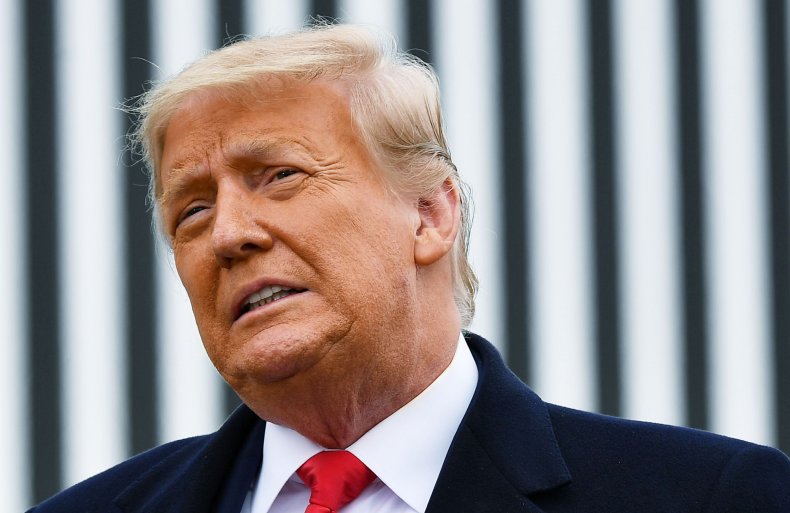[ad_1]
Michigan State University Professor Brian Kalt’s work was cited in former President Donald Trump’s defense brief, even though he’s repeatedly argued that the Senate has the constitutional authority to move forward with Trump’s trial.
Trump’s attorneys cited Kalt’s work 15 times in the 78-page brief to back up their argument that putting the former president on trial after he left office is unconstitutional. The Senate is expected to vote on the issue of constitutionality Tuesday, and the argument is expected to be the basis of their defense during Trump’s trial, although it’s an unpopular opinion among legal scholars.
Kalt tweeted that his 2001 article favored late impeachability but presented evidence from both sides of the debate, giving Trump’s attorneys “lots for them to use fairly.” However, he said the attorneys “badly” misrepresented what he wrote in several places.
Newsweek reached out to Bruce Castor and David Schoen, two of Trump’s attorneys, for comment but did not receive a response in time for publication.
In the filing, Trump’s attorneys reference Kalt instead of the sources he cited for his article. In one spot, they cite Kalt in making the argument that “when a president is no longer in office the objective of an impeachment ceases.”
Kalt argues in his 2001 article that removal is mandatory for sitting officers upon conviction, “but it is not the sole end of impeachment.” He adds that the Constitution is clear that conviction guarantees removal but “it does not clearly or necessarily say ‘impeachability equals removability.'”

Mandel Ngan/AFP/Getty
Before Trump’s attorneys submitted their brief, Kalt had written two op-eds supporting the Senate’s ability to convict Trump.
“They are wrong,” Kalt wrote in a Washington Post op-ed, in reference to the likely argument Trump’s defenders would make that the Senate can’t try a president after he leaves office.
In the op-ed, Kalt and his co-author, Frank Bowman, a law professor at the University of Missouri, argue that there is “strong historical evidence for late impeachability.” They point to cases involving former Senator William Blount and former Secretary of War William Belknap, who were both put on trial in the Senate after leaving office.
Kalt made the same argument in an op-ed in The Hill a week later. While the Constitution is “confusing, not clear” on the subject, he wrote that, “on balance, the evidence firmly supports allowing impeachment proceedings against ex-officials.”
Unlike Trump’s first impeachment trial, removing him from office isn’t the goal of this second trial; it’s to keep him from running for federal office again. Barring him from future office after a conviction would require a simple majority vote, which Democrats have without Republican support. But Trump’s attorneys argue that you can’t prohibit someone from running for office if the official wasn’t removed from office first.
On Sunday, Castor told Sebastian Gorka on his American First podcast that impeachment was meant to be an “emergency escape provision” to get somebody out of office because they’re causing damage and the “country is suffering.” Castor argued that it wasn’t intended to be a “punishment.” Officials who do “bad” things at the end of their term can face judgment in a criminal trial, not a Senate trial, Castor said.
Kalt agreed in his Hill op-ed that removal is the “most important thing” in most impeachment cases. But considering removal the most important resolution is “different from saying that impeachment cannot exist without it.” If the “worst offenders” could avoid being disqualified from future office by resigning, he said, the Founding Fathers wouldn’t have included the penalty in the Constitution.
Impeachment’s two goals of providing deterrence and accountability are just as important at the end of an official’s term, according to Kalt, and cannot be met without late impeachment.
“The framers worried about people abusing their power to keep themselves in office,” Kalt told NPR. “The point is the timing of the conduct, not the timing of the legal proceeding.”
[ad_2]
Source link